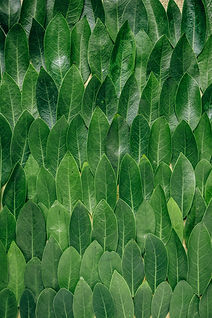You are here: Home /
Dr Jacquiline Ndosi

FUTURE AFRICA
RESEARCH LEADERSHIP FELLOWSHIP
The Future Africa Research Leadership Fellowship (FAR-LeaF) is an early career research fellowship program focused on developing transdisciplinary research and leadership skills.

Dr Jacquiline Ndosi
Tanzania

Mwalimu Julius K. Nyerere University of Agriculture and Technology
The role of agricultural innovation system toward empowering women farmers to climate change adaptation strategies
Tanzania | Agricultural production is highly dependent on and the most vulnerable sector to climate and weather changes. Unpredictable precipitation, increased temperatures, and elevated carbon concentrations have a direct impact on crop production, resulting in substantial economic consequences. Changing rainfall patterns, increased frequency of extreme weather events such as droughts and floods, and shifts in the timing and length of growing seasons have impacted agricultural production. For over 30 years, climate change has reduced global agricultural production by 1%-5% per decade, with adverse effects on tropical cereal crops such as maise and rice.
The ability of women farmers in Tanzania to adopt climate adaptation strategies is influenced by the structural composition of the Agricultural Innovation System (AIS). The AIS emerged in the early 2000s and is defined as the group of organisations and individuals involved in the generation, diffusion, adaptation, and use of new knowledge, as well as the context governing how these interactions and processes occur. The interactions among actors in the AIS ensure the flow of innovations and feedback for resolving agricultural problems, including those related to climate change. The primary objective of the AIS is to enhance the utilisation of information and knowledge by farmers and other stakeholders, and to improve the system's overall performance.
Farmers are placed at the centre of the AIS in developing innovations, including those related to climate change adaptation strategies, such as drought-resistant crop varieties, drought-tolerant varieties, and early-maturing varieties, as well as access to credit. However, like other aspects of climate change, adaptation is not gender-neutral. For instance, observed differences in gendered climate adaptation are due to gender barriers, rather than a preference for different approaches by men and women. Age, cultural practices, access to resources such as land and capital, low literacy rates, informal skills, and limited mobility are among the factors affecting women farmers' ability to implement climate change adaptation strategies.
Evidence showed that while most male farmers have access to improved crop varieties, female farmers, on the other hand, cultivate traditional crops. Women are often rigid about conventional agriculture due to persistent gender disparities in labour, education, technology, extension, financial services, and access to and use of productive resources, such as land, livestock, and labour. There is a significant gender gap in climate change adaptation in the farming sector. Women's workload – household chores, social and cultural barriers, traditional gender norms and division of labour – exacerbates the gender gap in climate change adaptation strategies.
The AIS is critical for women's empowerment toward climate change adaptation strategies. It brings together farmers, including women farmers and organisations, to foster reciprocal learning and create, distribute, and use technology, expertise, and information connected to agriculture. More research is needed to increase knowledge on how women farmers have been empowered to implement climate change adaptation strategies through the AIS in Tanzania. Climate change actions should be based on consultation with women to build on and incorporate their skills and knowledge, and to provide opportunities for enhancing health, education, and livelihoods.
Dr Ndosi's study intends to map the existence of the Agriculture Innovation System in the study areas, investigate how women are using/interacting with the AIS to develop or share climate change mitigation strategies in the study area, examine the level of adoption of climate change mitigation strategies from the AIS adopted by women in the study area and assess the effect of the adoption of climate change mitigation strategies on women's empowerment. This study, therefore, aims to generate crucial information on how AIS in the areas under study empowers women smallholder farmers to respond to climate change adaptation strategies. Emerging literature around climate change adaptation and gender in agriculture has increasingly highlighted the need to focus on women farmers. Increasing women's participation would lead to greater environmental and productivity gains. It would create mutual benefits and greater returns across the SDGS, including SDG 5 (gender equality and women's empowerment) and SDG 13 (action to combat climate change).
Social Network Analysis (SNA) is one of the most modern and efficient methods of AIS analysis. This study employs the SNA to reveal women's interaction with other AIS actors and gender variations in climate change adaptation strategies in maise production in the study areas. The SNA sheds light on the information and knowledge flows that support social learning for the spread and uptake of innovations at local and territorial levels, as well as the calibre of the social structures that serve as the foundation for social capital. The study will be conducted in Tarime, Mara region, and the Mpimbwe District Council in the Katavi region. Tarime District Council is situated in the northwest of Tanzania. Most residents of the Tarime District Council depend on agriculture for their livelihood. Maise is a significant crop; the average annual production is 54,478 tons.
Dr Jacquiline Ndosi is a lecturer in the Department of Humanities at Mwalimu Julius K. Nyerere University of Agriculture and Technology (MJNUAT), Tanzania. She holds a PhD in Agriculture and Rural Innovation from Sokoine University of Agriculture (SUA), specialising in Women and Agricultural Rural Innovation. Her research focuses on gender and agricultural value chains, women and climate change, and inclusive rural innovation systems. Dr Ndosi is passionate about advancing gender-responsive approaches in agriculture and promoting the empowerment of rural women through participatory and sustainable development practices.



